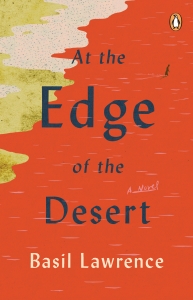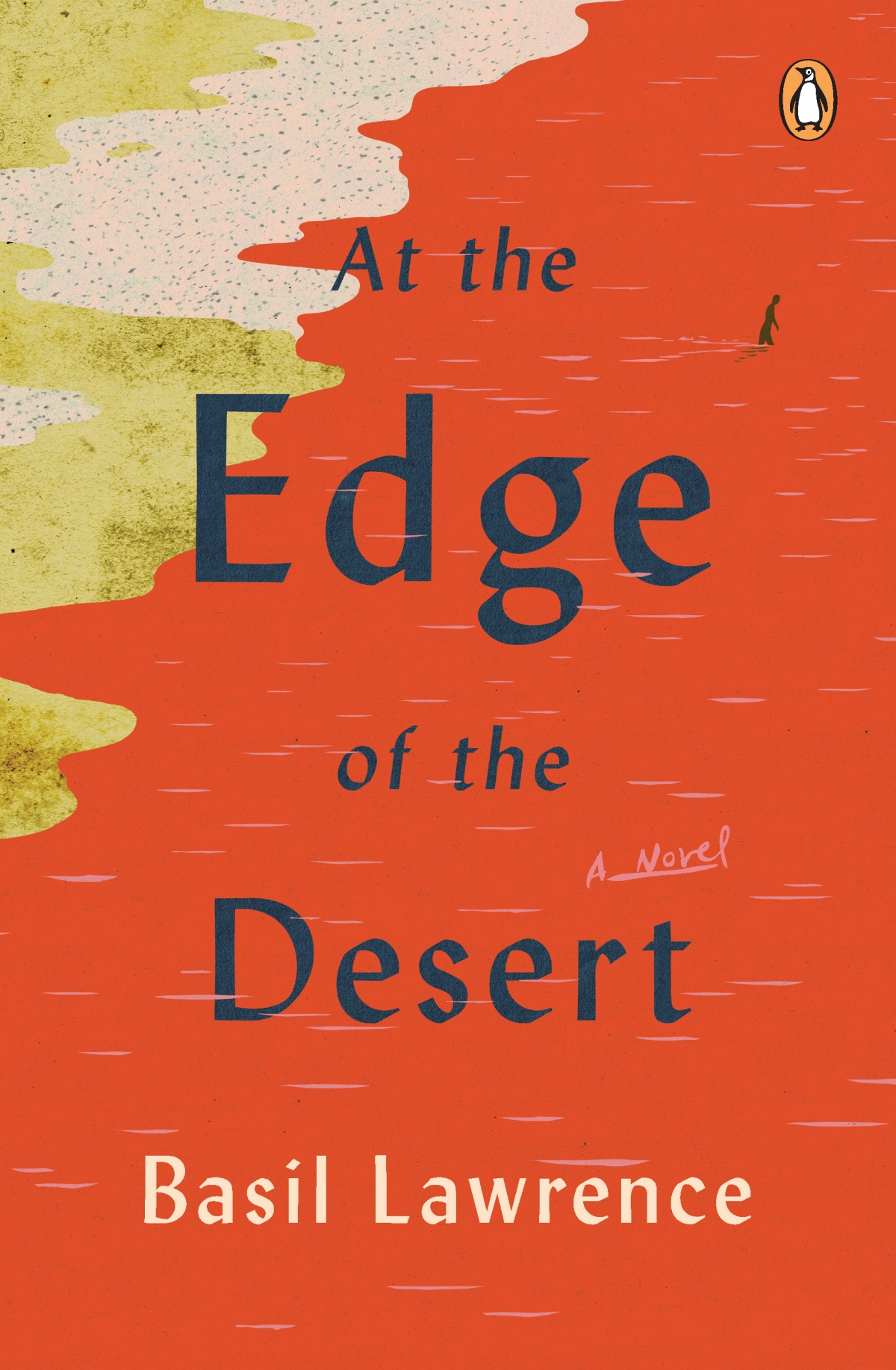
Within a few weeks I’d settled back into my old routine. My days began with cossie and goggles wrapped in a towel. I’d follow the road down to the Shark Island pool – a quick walk through Lüderitz – for a morning swim before returning home to edit my documentary. I spent my time attempting to make sense of South African prison gangs, struggling to decide if my film should focus on the men or their make-believe uniforms.
Shark Island, despite its name, is a peninsula connected to the main- land by a narrow causeway. On it a sign reading HAIFISCH points to the campsite, situated on high ground to avoid flooding by rough seas, and another, SCHWIMMBAD, to the tidal pool built adjacent to the Atlantic. Occasionally I’d be early enough to see trucks loading the overnight catch they’d transport to the processing factories. Here the southern ocean is a fishy stew and my mornings smelt of ammonia, from iced pilchards and steenbras, just like those of my childhood.
And on some days – like today, when the distant campground was al- most empty save for a few tents, their canvas pulled taut over their curved poles, making dull-coloured igloos – I’d set off again in the afternoon. I walked at a good pace, even though the strong wind threatened to make me lose my footing, because I was due to meet a striking man on Shark Island and couldn’t be late.
I spat into my goggles and rubbed them clean with a finger. I slipped off my jeans. Pulled on my swimming trunks before anyone could see me, and threw myself into the cold water that was gritty with sand.
The Atlantic spewed foam over the pool’s seaward wall, which separated me from the darker surf, small rocks on that wall like bobbing seals. I pushed away from the shallow end, kicking through the chaos, with both arms extended.
When I was a teenager I’d easily clock forty lengths of freestyle, some- times more, in a session. Back then I could swim an entire length of the half-Olympic in a single breath.
I counted my strokes until my mind began to wander. I found my rhythm.
Arm reached forward.
Fingers fully extended before they caught the water.
Head turned to the side.
Air in.
Face down again to exhale without thinking as my lagging arm broke the surface.
Jago arrived half an hour late, walking confidently towards me, without apology, in linen trousers and a cotton shirt more suited to the Mediterranean than the southern Atlantic. His hair hung loose, so he kept raking it back with his fingers to stop the south-westerly blowing it across his face.
He dipped a hand into the pool.
I said, ‘You like cold water?’
‘Well ...’
‘It’s warmer when you’re in,’ I lied. He had his phone with him, which I suggested he lock in his rental car. When he returned to the pool he took a bit more coaxing before finally lowering himself into the water.
Jago was from Germany; he was tall and blond, and perhaps a bit self-satisfied. He was the regional director of an AIDS-awareness NGO, managing their Windhoek office, where he oversaw sub-Saharan education and prevention.
His organisation was headquartered in Berlin, and partly funded my sister’s charity, the Benguela Trust. He was in town to see her, and she’d invited me for dinner the previous night. The meal interrupted my work but I happily fulfilled my brotherly duties because I knew her food would be good – it always is – and because I suspected her of trying to set me up with him. Lucia knew me better than to suggest outright that I might like him.
Initially he’d treated the meal as if it was an extension of their meeting: ‘We can only bring change to Namibia if we focus on unsexy infrastructure projects,’ he said after we’d shaken hands and I asked vaguely about his work. ‘I know this British charity whose donors want to watch happy little films about helping children to read. The donors don’t care about infra- structure. They aren’t interested in giving money to build highways between African cities they’ve never heard of. Books are everything that’s wrong with foreign aid. We should have a slogan: Books Are Bullshit. “Why are you still crying? Why are you still hungry? I gave you a book. Be quiet and read! Stop complaining!” You see the problem with a fucking book? But happy little films about roads and railways don’t sell. No, if someone in London wants to see a road then they look out their window. Please tell me you don’t work for a charity?’
Somewhat taken aback by this salvo, I wasn’t quite sure what to do with his abrupt question. ‘No, I don’t work for a charity,’ I said, ‘but I am guilty of making happy little films.’ My remark caused him to smile, and he looked at me with interest.
After supper Lucia suggested that we make ourselves comfortable in the lounge, where Jago lost no time rifling through her record collection. When at last he came to the settee I’d almost finished rolling my first joint. Without looking up, I asked where he was from.
‘I was born in Berlin,’ he said. ‘My favourite place on earth.’
‘You have a favourite place on earth? Do you have a favourite colour?’ I shot him a look to show that I was joking.
‘It’s better than this town,’ he said.
‘Why do you say that?’
‘This place is so ugly. I’ll take you to Berlin and show you real beauty.’ I lit the spliff. ‘Deal.’
As the three of us became increasingly goofed on weed, Jago kept repeating that Lüderitz was a dump, until I told him about Shark Island just to shut him up. I said that the tidal pool was my favourite place in the world as I reached for the almost burnt-down joint he held between his lips. I let my thumb and forefinger rest on his soft skin as he inhaled, and after I’d taken a few quick puffs of my own I announced: ‘And you’ll meet me there tomorrow.’
To distract him from the south-westerly ruffling the water I suggested we swim to the wall.
With our elbows resting on the cold brick that separated us from the Atlantic Ocean, our legs stretching back in the pool behind us, I couldn’t keep my eyes off his tattoos. The water blackened the marks as if they’d just been painted on his skin with a thick calligraphy brush.
‘Touch them,’ he said when he saw me looking.
‘No, I’m fine.’ Wishing that I’d smoked some weed on my walk down here, I returned my attention to the waves breaking over the far corner. I told him somewhat nervously that I’d been in the middle of that chaos before he arrived.
Our only company was a pod of bottlenose dolphins, their dorsal fins cutting the water close to the sea wall, snorting as they exhaled. They were on their way to join the ocean’s heavy traffic, the great whites and the whales, in the icy current that flows from the Antarctic along the Namibian coast to the equator.
Jago moved towards me to ask about the barren land lying west of us. I explained about the distant lighthouse, how its beam swung around like a giant clock.
‘You should be a tour guide,’ he said.
‘Sorry.’
‘No, I like it.’ He clearly felt bad about his remark because he began estimating how much I’d make if I charged tourists ten dollars each. After his sums he said, ‘So you always swim in this icebox?’
‘Every day.’
‘Hot desert next to freezing water.’ He stared at me, as if reluctant to look away, before turning his attention to the town behind me so that his back was to the ocean. ‘This place has such a weird sensation. The houses are watching me.’
I preferred the waves but glanced over my shoulder at the buildings on this side of the Diamantberg, their windows reflecting the late-afternoon light back out to sea. Even the rock glistened. At night, when I was in bed, I’d sense the granite amphitheatre protecting me from whatever might come rushing at the town.
_________________________________________________________________________________________________








